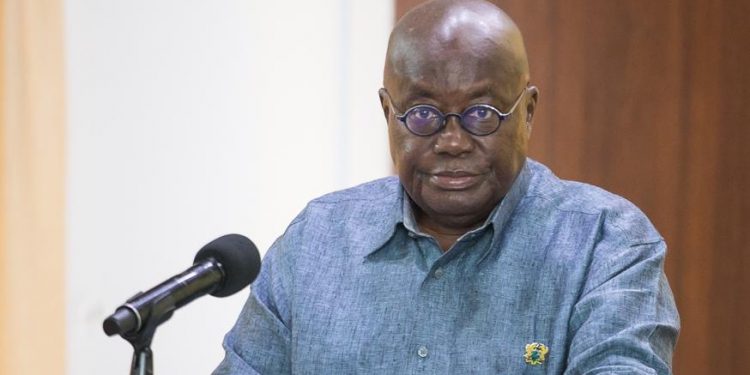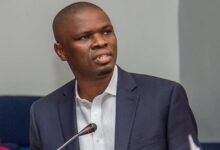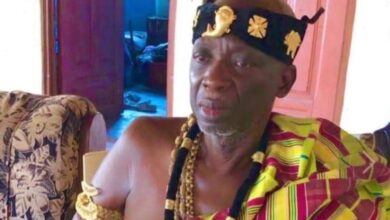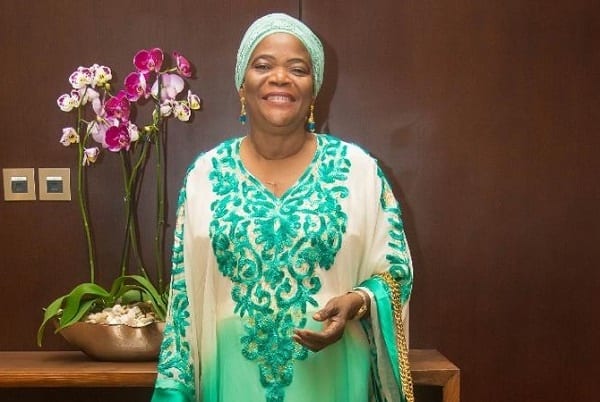Akufo-Addo To Defer Assent To Anti-gay Bill

President Nana Addo Dankwa Akufo-Addo has no plan of assenting to the Promotion of Proper Human Sexual Rights and Ghanaian Family Values Bill known as the Anti-LGBTQ passed by parliament last week.
Constitutionally, the President is mandated to assent to any bill from Parliament within seven days after its submission to his office or communicate the reason for otherwise in a Memorandum to the Speaker of Parliament within 14 days.
However, he divulged his intention to defer the assent during the Diplomatic New Year Greetings with Members of the Diplomatic Corps on Monday, March 4, 2024.
Though the bill is yet to be submitted to his Office, he intends to defer it until a civil action against the bill is resolved.
“But, suffice it to say, that I have learnt that, today, a challenge has been mounted at the Supreme Court by a concerned citizen to the constitutionality of the proposed legislation. In the circumstances, it would be, as well, for all of us to hold our hands, and await the decision of the Court before any action is taken.”
He also assured the Diplomatic Corps that the country would not back-slide in its democracy.
“I am aware that last week’s bi-partisan passage by Parliament of the Proper Human Sexual Rights and Ghanaian Family Values Bill, on a Private Member’s motion, has raised considerable anxieties in certain quarters of the diplomatic community and amongst some friends of Ghana that she may be turning her back on her hitherto, enviable, longstanding record on human rights observance and attachment to the rule of law. I want to assure you that no such back-sliding will be contemplated or occasioned.”
The development means that President Akufo-Addo might be out of office when the Court delivers a verdict on the case.
Bill Passage
Ghana’s Parliament on February 28, 2024 passed the Anti-LGBTQ bill after its initiation in 2021 by eight legislators.
The bill has been subjected to reviews and amendments in the past three years to enhance what some have said are inhuman punitive actions.
The bill among other things institutes three to five years of imprisonment for engaging in same-sex intercourse and imprisonment for anyone who produces, procures, or distributes material deemed to be promoting LGBT+ activities.
It also seeks to institute 6 months to 1-year imprisonment for a public show of amorous relations between people of the same sex; a ban on sponsoring LGBT+ groups; a ban on adoption and fostering for LGBT+ potential parents; prohibition of same-sex marriage; 6 months to 3 years imprisonment for anyone who harasses someone accused of being LGBT+ and others.
The international community has been reacting to the news with US State Department spokesman Matthew Miller tweeting, “The Ghanaian parliament’s passage of a bill criminalizing members of the LGBTQI+ community imperils the rights of all its people, its international reputation, and its economic development. Ghana’s laudable tradition of tolerance will be undermined if this bill becomes law.”
The US Ambassador to Ghana, H.E. Virginia Palmer threatened the bill if passed into law would take a toll on the country’s economy.
Meanwhile, the World Bank has threatened, “World Bank Group reiterates its deep commitment to supporting Ghana in achieving its development goals while ensuring that in the implementation of World Bank projects no beneficiaries are impeded from sharing in any development benefits on the grounds of their age, gender, ethnicity, religion, physical, mental or other disability, social, civic or health status, sexual orientation, gender identity, indigenous heritage, or economic status.”
Finance Minister Red Flag
On March 4, the Finance Minister, Mohammed Amin Adam issued a warning to the effect that the bill, if assented could cost the country financial aid and budget support worth US$3.8 billion and take a toll on the International Monetary Fund (IMF) program of the country.
In a press release, the Minister recommended that the President “defer assenting to the Bill” to make way for the fortification of local financial systems, strengthening African financial institutions as well as forging partnerships with conservative countries.
He also called for a structured engagement with local conservative forces such as religious bodies and faith-based organizations about the economic implications of the passage of the bill.
Additionally, he called for a stronger coalition and a framework for supporting key development initiatives that are likely to be affected if the bill is passed as well as effective engagement with conservative countries, including the Arab countries and China that would trigger resources to fill in the potential financing gaps to be created.








